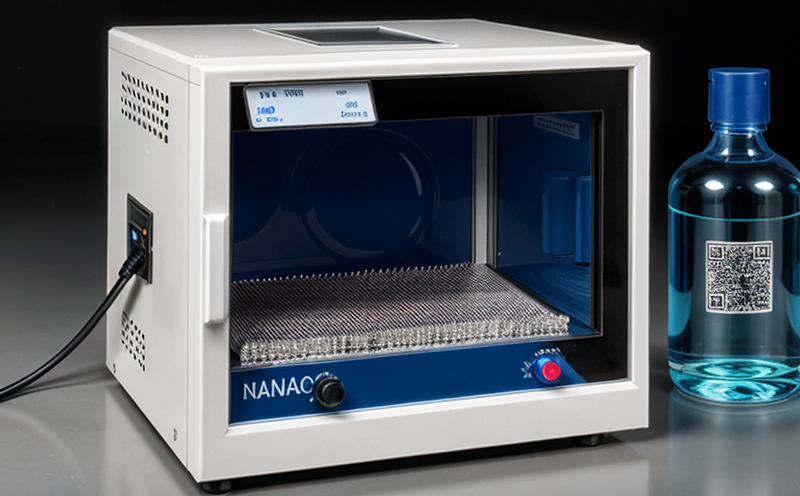USP 233 Elemental Impurity Testing of Nanopharmaceuticals
The United States Pharmacopeia (USP) Chapter 233, titled "Elemental Impurities in Pharmaceutical Products," has set standards for the detection and quantification of elemental impurities in pharmaceutical products. This chapter is critical for ensuring the safety and quality of nanopharmaceuticals, which are drugs that contain nanoparticles.
Our laboratory specializes in performing USP 233 Elemental Impurity Testing on nanopharmaceuticals. Nanoparticles can vary widely in size and composition, making them particularly challenging to analyze for elemental impurities. Our expertise lies in handling these complexities with precision and accuracy.
The testing process involves several key steps: sample preparation, dissolution, and analysis using advanced analytical techniques such as Inductively Coupled Plasma Mass Spectrometry (ICP-MS) or High-Resolution Electron Microscopy (HREM). These methods allow for the detection of trace elements at extremely low concentrations.
Our laboratory ensures that all samples are prepared according to USP guidelines, which include specific procedures for dissolution and drying. Once prepared, the samples undergo rigorous analysis using state-of-the-art equipment. The results are then compared against established acceptance criteria provided in USP Chapter 233.
The importance of this testing cannot be overstated. Nanopharmaceuticals often contain a wide range of elements due to their complex manufacturing processes, which can lead to the formation of unwanted elemental impurities. These impurities could pose significant risks if not controlled adequately.
Our team has extensive experience in this area and uses only the latest technologies to ensure accurate results. We understand that every sample is unique, requiring tailored approaches based on its specific composition and intended use. This personalized approach ensures consistent quality and reliability across all tests conducted.
We provide detailed reports outlining our findings along with recommendations for any necessary corrective actions. Compliance with USP Chapter 233 is essential not only for regulatory approval but also to maintain public trust in pharmaceutical products. By adhering strictly to these standards, we help ensure that nanopharmaceuticals are safe and effective when used by patients.
Our commitment to excellence extends beyond mere compliance; it includes continuous improvement of our methods and equipment to stay ahead of industry trends and emerging challenges. We believe in fostering long-term relationships with our clients through transparent communication, reliable service, and high-quality outputs.
Eurolab Advantages
- Highly trained and experienced staff specializing in nanopharmaceutical testing.
- Access to cutting-edge technology including ICP-MS and HREM for precise analysis.
- Dedicated sample preparation facilities following strict USP guidelines.
- Comprehensive quality control measures ensuring consistent accuracy across all tests.
- Expertise in interpreting results within the context of regulatory requirements.
- Prompt delivery of detailed reports including actionable recommendations for clients.
- Commitment to ongoing training and updating knowledge base regarding USP standards.
Quality and Reliability Assurance
To maintain the highest level of quality assurance, our laboratory adheres strictly to USP Chapter 233 guidelines throughout every stage of the testing process. This includes proper sample handling, precise dissolution techniques, appropriate instrumental calibration, and thorough validation protocols.
We employ rigorous internal controls designed to minimize errors and ensure reproducibility. All personnel involved in the testing process undergo regular training sessions focused on latest developments in nanopharmaceutical analysis and updates to USP standards. Regular audits conducted by independent third parties further reinforce our commitment to maintaining top-notch quality.
In addition, we participate actively in inter-laboratory comparison exercises organized by reputable organizations such as the International Organization for Standardization (ISO) or the European Pharmacopoeia Commission (EPC). These exercises help us benchmark ourselves against other leading laboratories globally and identify areas for improvement continuously.





